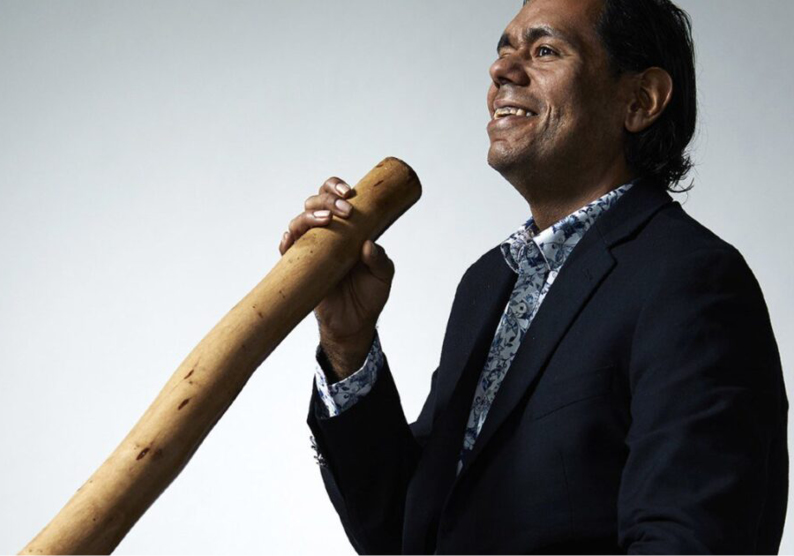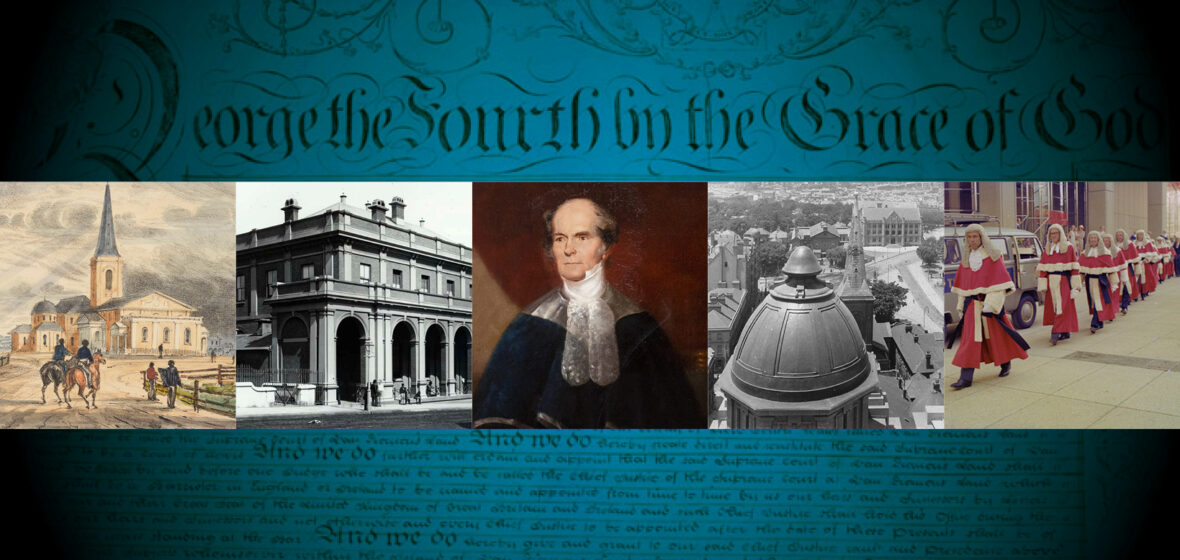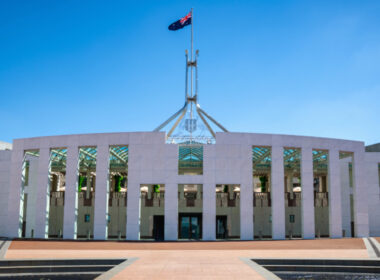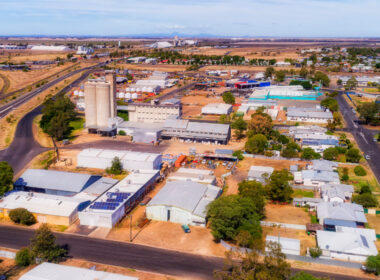The Supreme Court of NSW has formally marked its bicentenary with a ceremonial sitting in Sydney this morning.
The Supreme Court was established under the Third Charter of Justice on 17 May, 1824. It is now one of the oldest continually running courts in the common law world.
The ceremonial sitting included speeches from the Chief Justice Andrew Bell, NSW Attorney General Michael Daley, the President of the NSW Bar Association Ruth Higgins, and the President of the Law Society of NSW, Brett McGrath. The ceremony also featured a stirring performance by Kalkadunga man and musician and composer, William Barton.
“The importance of this ceremony, at least in my view, lies in the fact that institutions matter. They are the bedrock on which any civilised society rests and it is vital that their history, work and purpose is understood and appreciated,” the Chief Justice said in his address.
“The Court has itself been a witness to, and in part an agent for, great societal change over the decades such as in respect of women’s rights to property, custody and status, and the huge changes wrought by the arrival of electrically powered machinery and motor vehicles, with the concomitant rise in personal injuries and industrial accidents. Most recently, its docket has seen it dealing with thousands of cases of historic institutional sexual abuse as well as class actions designed to facilitate access to justice.
“The Court has also been the venue for a host of causes célèbres which have captured the attention of the colony and then the nation. Nowadays, the advance of technology has again allowed certain cases, including in this Court, to be broadcast at large to an apparently interested public.
“What animates and has animated the living institution that is the Supreme Court of New South Wales over the past 200 years are the people who participate in its daily life, a matter to be kept uppermost in our consideration as we confront the challenges and potency of artificial intelligence.”

Among the attendees inside the packed Banco Court were the Chief Justices of the Supreme Courts of New Zealand and Singapore and all Australian states and territories, the Acting Chief Justice of the High Court, Michelle Gordon, the Governor of NSW, Margaret Beazley, and the Chief Justice of the Federal Circuit and Family Court, William Alstergren, and the Chief Justice of the Federal Court, Debra Mortimer.
“The Supreme Court has overseen the calm application of law across NSW with an independent sense of justice that has animated the common law for more than a thousand years. Without that independence, maintained since Monday, 17 May 1824 the citizens of NSW would be much poorer,” McGrath said in his address to the Court.
“What has happened in the Supreme Court, over the past two hundred years, has happened without serious incident. There has been public controversy and friction between branches of the legal profession, and different attitudes to the application of the law. But no major incident has scarred this institution or disfigured it. It works in a complex, efficient, and prodigious capacity with an unbroken heritage.
“It is my hope, as it is of the profession I represent, that in 200 years this moment is remembered. That it is done so as an unbroken part of the 400-year anniversary of this Court. And for centuries after that, and ever onwards.
“The Law Society expresses its appreciation to Chief Justice Bell, the present steward of the Supreme Court’s storied history, and thanks him for his active engagement with the solicitor profession, particularly over the course of this bicentennial year.”
Daley used his address to highlight some of the Court’s most significant judgments and reforms and pay tribute to the enduring judicial officers.
“Two centuries on from its first sitting, with [the first Chief Justice] Francis Forbes and two magistrates on the bench, the Supreme Court of New South Wales is now more than 50 judges strong,” he said.
“Here we are today living in a mature democracy, with a Supreme Court that has served the people of NSW tirelessly and with integrity for two centuries. It is recognised as one of the great common law courts of the world and deserves its reputation as the ‘constant guardian’ of the rule of law in NSW.
“The Supreme Court has shown itself to be a vital civic institution which has lived up to its oath: ‘To do right to all manner of people, according to the law, without fear or favour, affection or ill will.'”
Full copies of all speeches delivered at the ceremonial sitting can be viewed here.




